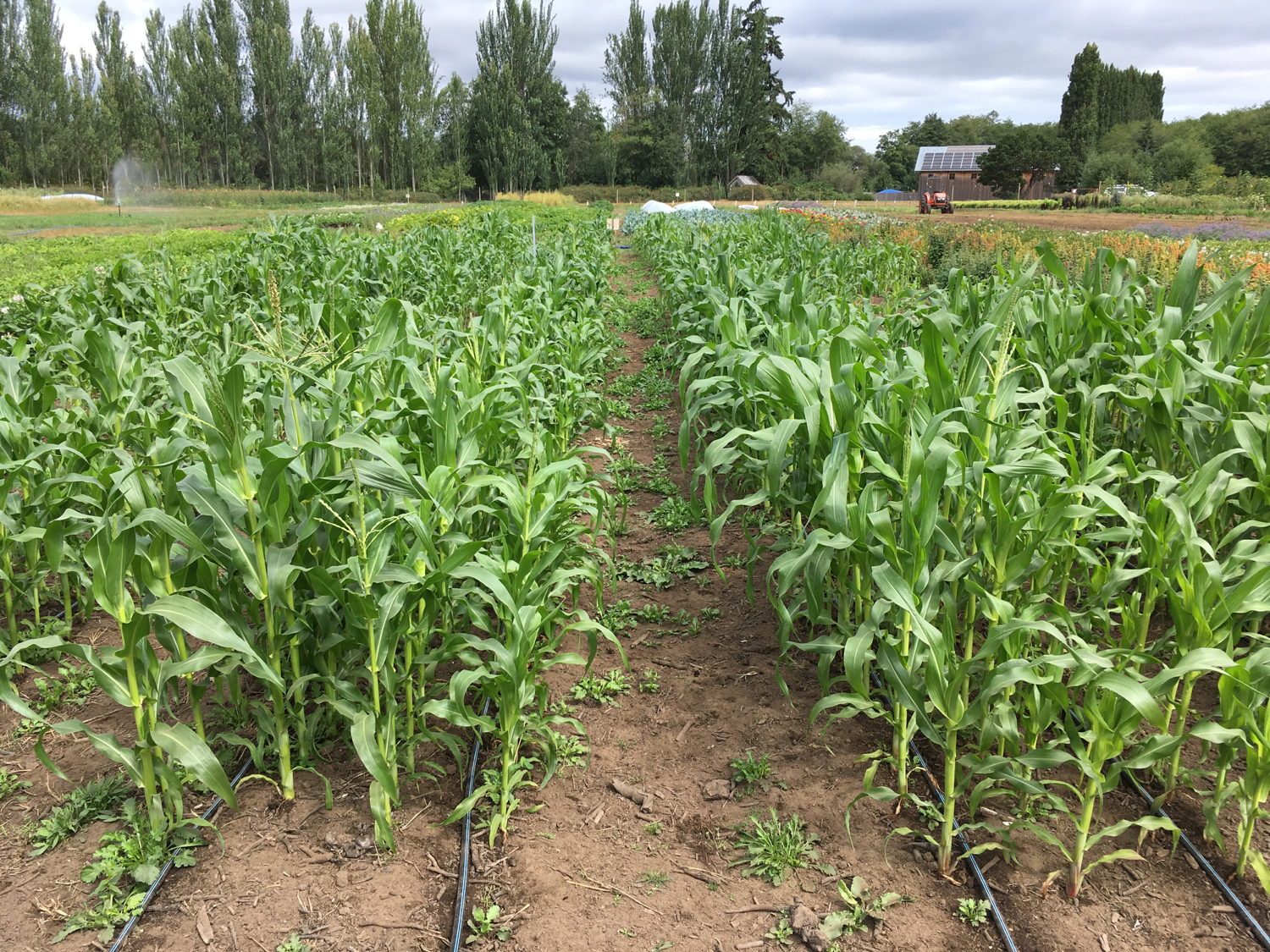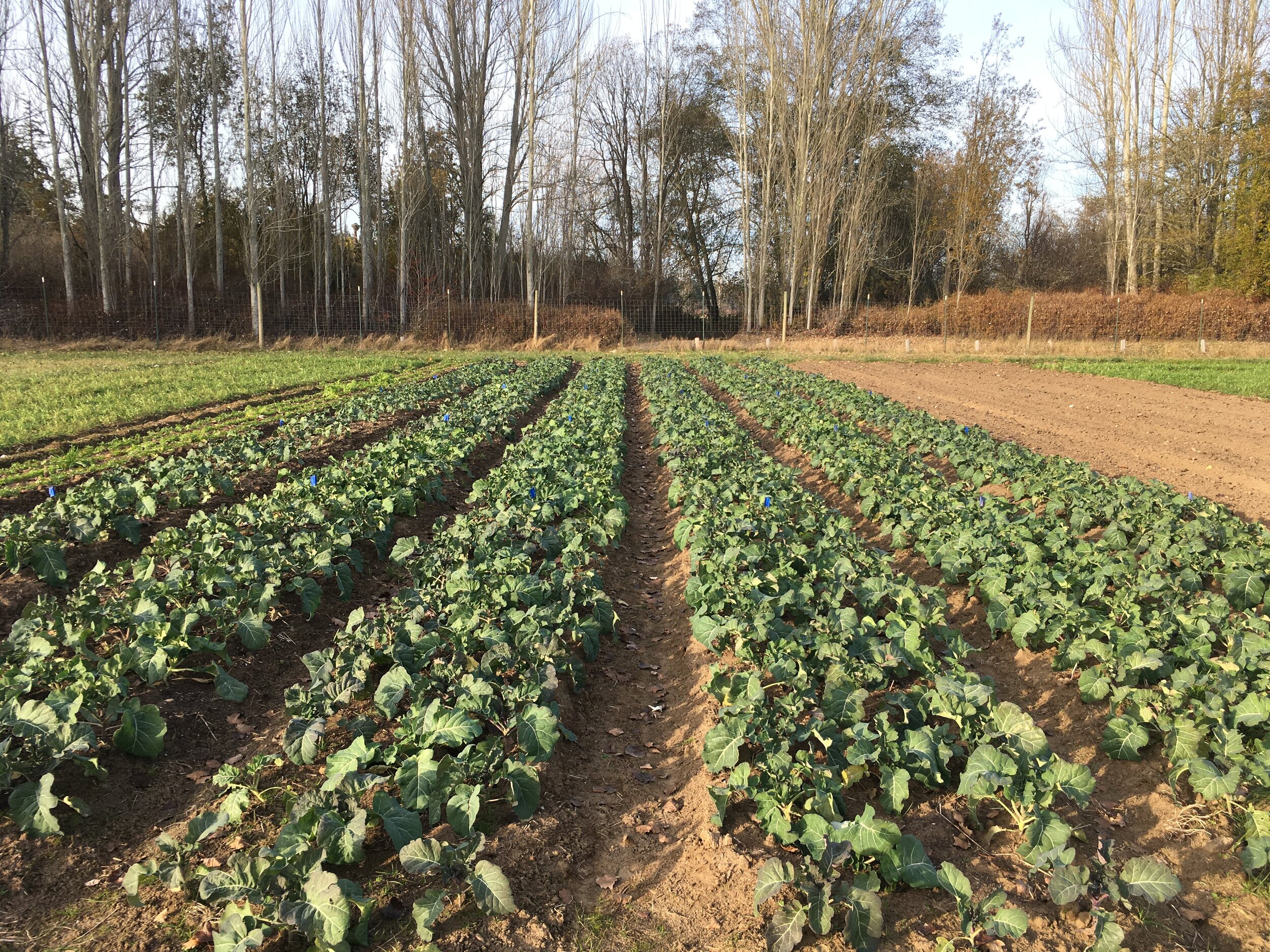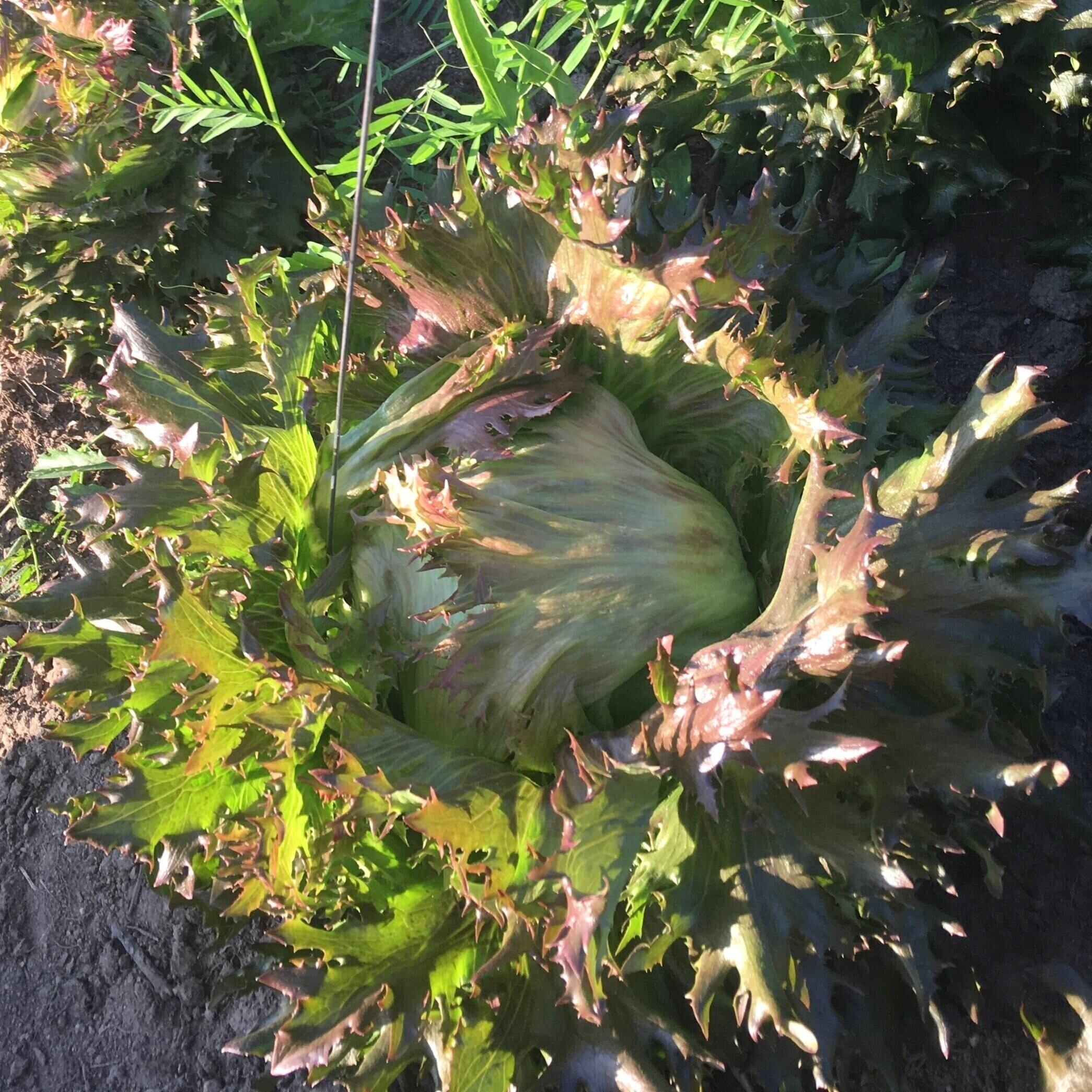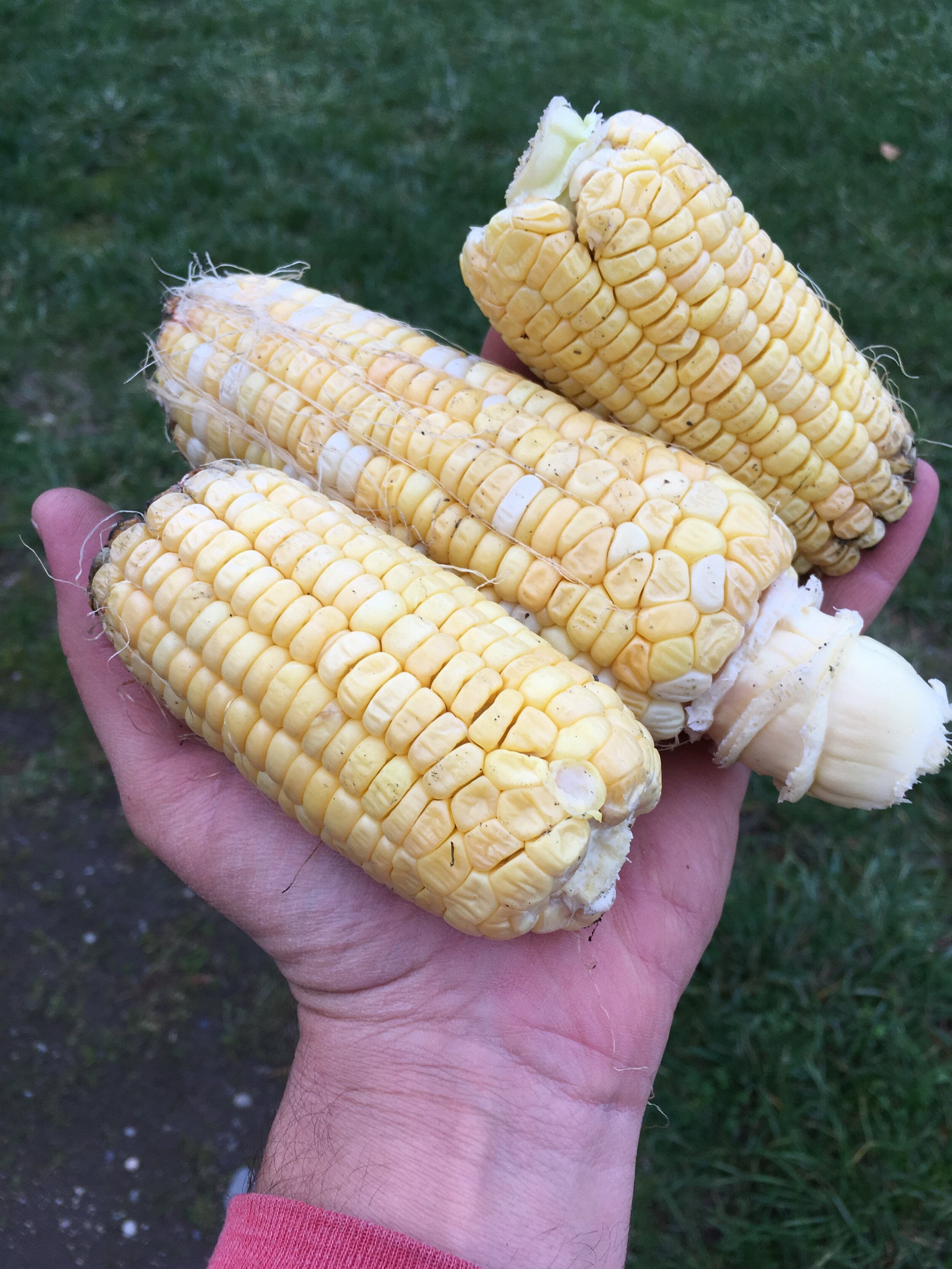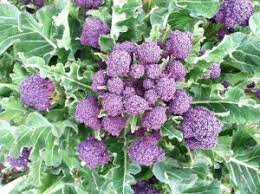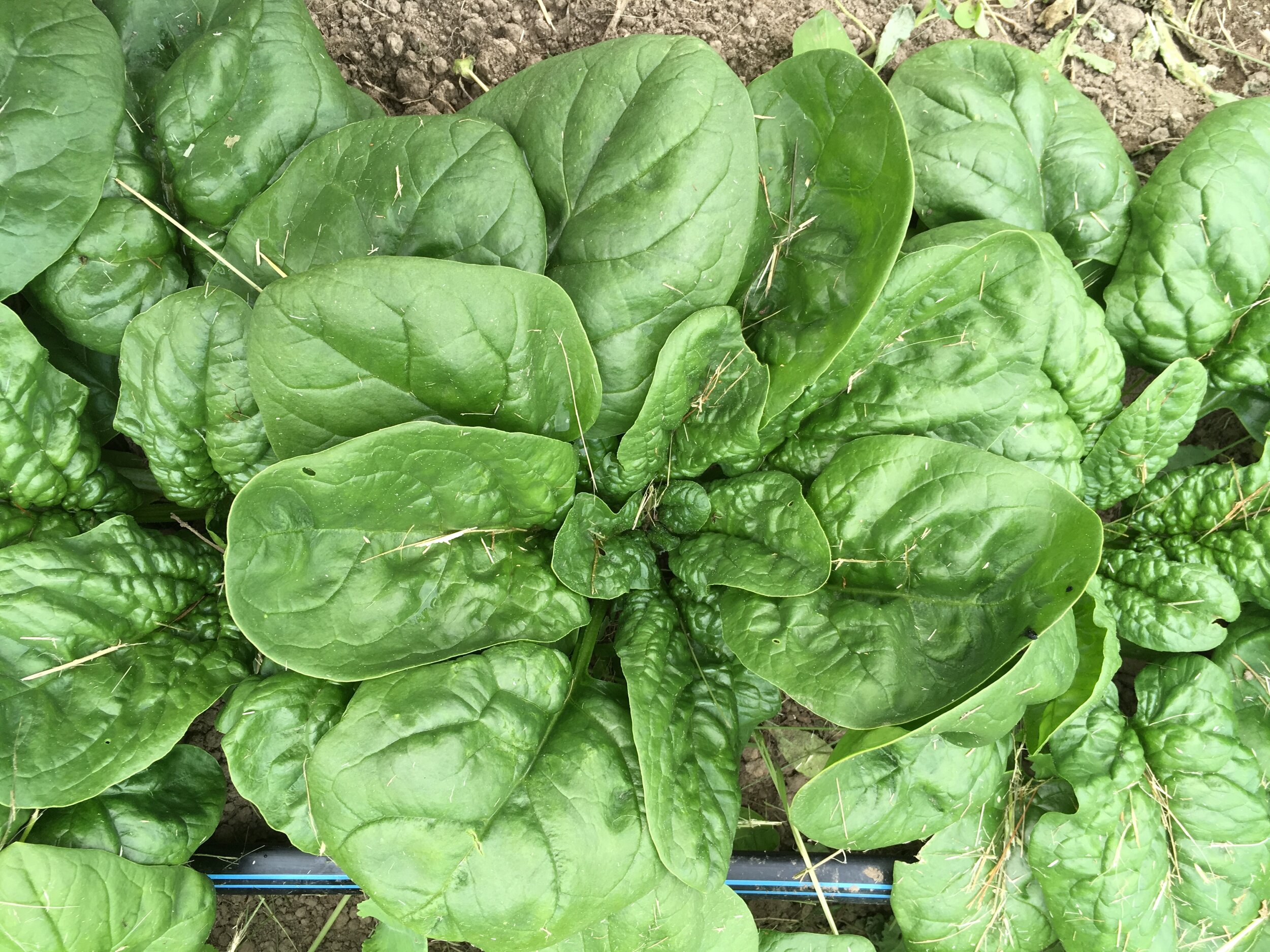Olympic Mountain Sweet Corn
In collaboration with the Organic Seed Alliance
The Olympic Sweet Corn project is working to breed a new open-pollinated sweet corn that grows well in the northern Puget Sound, meaning that it can germinate in our cool spring soils and ripen reliably in our relatively cool and short growing season. Much of the sweet corn seed available to organic growers is bred for non-organic systems, has to be started here in the greenhouse, and needs more heat than we typically get here in the PNW to mature a good crop. This multi-partner breeding project is well on its way to developing a strong organic sweet corn variety bred by organic farmers, for organic farmers.
Purple Sprouting Broccoli
In partnership with Johnny’s Selected Seeds
In our relatively mild winters here in the PNW, some crops are hardy enough to tough out our cold, wet winters out in the field. In addition to crops like kale, chicory, and spinach, overwintering purple sprouting broccoli is a great addition to grocery stores and tables in February through April, a time when fresh local produce choices are at their fewest. This project aims to breed a cold-hardy, productive, and delicious open-pollinated overwintering purple sprouting broccoli to help local farmers generate some off-season revenue, and to help our communities feed ourselves delicious local produce year-round.
Lettuce and Spinach
OFS independent breeding projects
We’ve dabbled in a handful of breeding projects at OFS, but the two with the most promise are our head lettuce and baby spinach breeding projects. The lettuce started as a deliberate cross between some of our favorite lettuces, and over the past two years we’ve selected the plants with the most unique appearance, the biggest heads, and the best flavor. The spinach project came from a five-way cross of some top-performing varieties, and over the past three years we’ve been selecting for the most upright and bolt-resistant plants. Hopefully we’ll all be eating some of the results in 2020, and we hope to have “finished” varieties of each crop sometime in the next few years.


